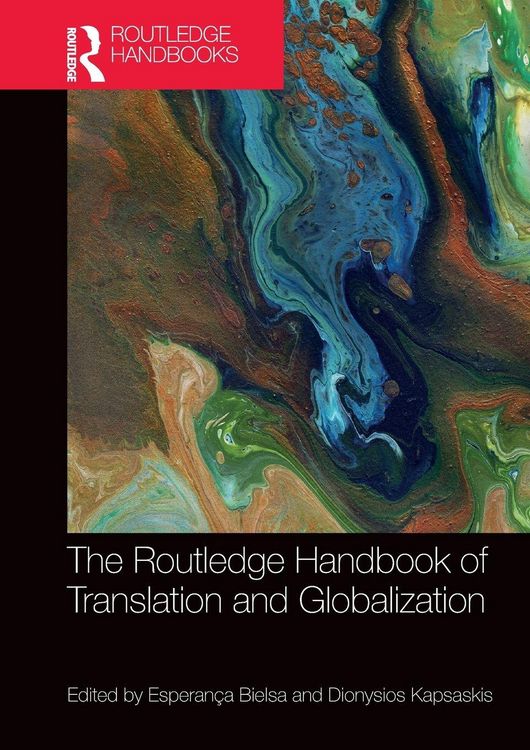The Routledge Handbook of Translation and Globalization
-
- Taschenbuch ausgewählt
- eBook
-
Sprache:Englisch
-
Verlag:Taylor & Francis
58,99 €
UVP
70,60 €
inkl. MwSt,
Lieferung nach Hause
Beschreibung
Details
Einband
Taschenbuch
Erscheinungsdatum
29.01.2024
Abbildungen
schwarz-weiss Illustrationen, Raster, schwarz-weiss, Zeichnungen, schwarz-weiss, Tabellen, schwarz-weiss
Herausgeber
Esperança Bielsa + weitereVerlag
Taylor & FrancisSeitenzahl
564
Maße (L/B/H)
24,6/17,4/3 cm
Gewicht
1200 g
Sprache
Englisch
ISBN
978-0-367-64027-9
This is the first handbook to provide a comprehensive coverage of the main approaches that theorize translation and globalization, offering a wide-ranging selection of chapters dealing with substantive areas of research. The handbook investigates the many ways in which translation both enables globalization and is inevitably transformed by it.
Taking a genuinely interdisciplinary approach, the authors are leading researchers drawn from the social sciences, as well as from translation studies. The chapters cover major areas of current interdisciplinary interest, including climate change, migration, borders, democracy and human rights, as well as key topics in the discipline of translation studies. This handbook also highlights the increasing significance of translation in the most pressing social, economic and political issues of our time, while accounting for the new technologies and practices that are currently deployed to cope with growing translation demands.
With five sections covering key concepts, people, culture, economics and politics, and a substantial introduction and conclusion, this handbook is an indispensable resource for students and researchers of translation and globalization within translation and interpreting studies, comparative literature, sociology, global studies, cultural studies and related areas.
Unsere Kundinnen und Kunden meinen
Verfassen Sie die erste Bewertung zu diesem Artikel
Helfen Sie anderen Kund*innen durch Ihre Meinung
Kurze Frage zu unserer Seite
Vielen Dank für dein Feedback
Wir nutzen dein Feedback, um unsere Produktseiten zu verbessern. Bitte habe Verständnis, dass wir dir keine Rückmeldung geben können. Falls du Kontakt mit uns aufnehmen möchtest, kannst du dich aber gerne an unseren Kund*innenservice wenden.
zum Kundenservice
